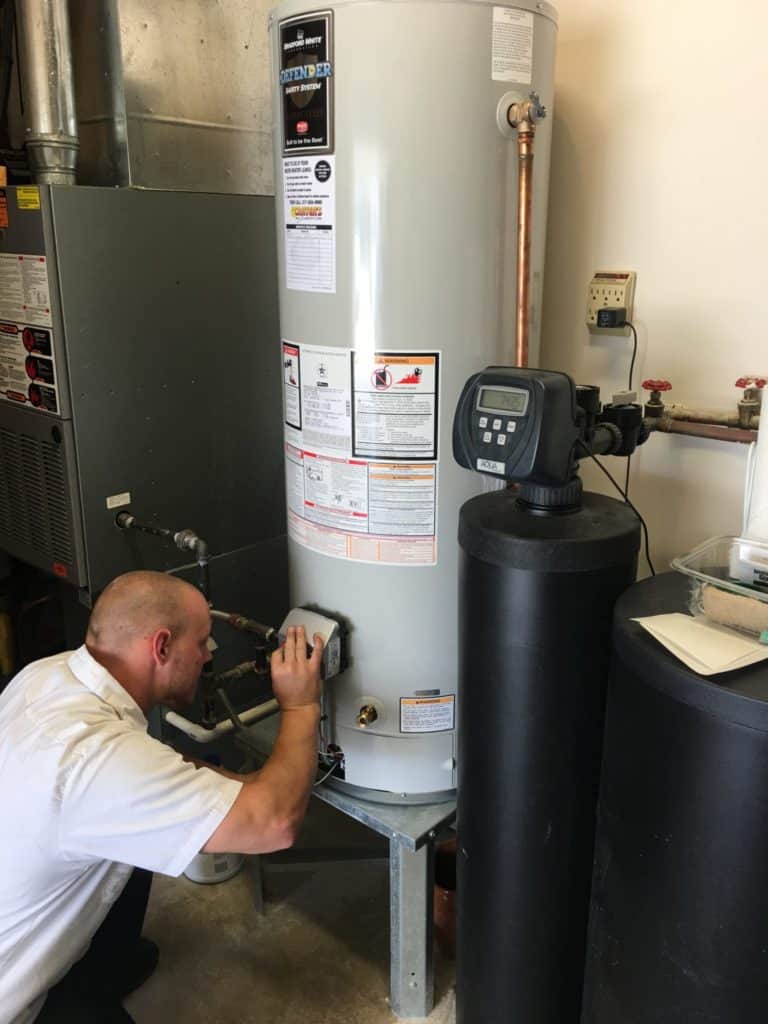Dealing with the Typical Water Heater Crisis Scenarios
Dealing with the Typical Water Heater Crisis Scenarios
Blog Article
What're your opinions on Is Your Water Heater Leaking??

A water heater is one of one of the most essential standard home appliances that can be found in a residence. With hot water heater, you do not require to undergo the stress of heating water by hand whenever there is a demand to take a bath, do the laundry, or the recipes. Nevertheless, there is constantly a possibility that your hot water heater would act up similar to most mechanical devices.
It is essential to note any kind of little malfunction as well as tackle it promptly prior to points leave hand. Most times, your water heater begins to malfunction when there is an accumulation of sediments as a result of continuous use. As a safety measure, routine flushing of your water heater is recommended to prevent sediment accumulation and avoid useful failing.
Common water heater emergency situations as well as exactly how to handle them
Dripping water heater storage tank.
A dripping container could be an indicator of rust. It can cause damage to the flooring, wall surface as well as electric devices around it. You can even be at danger of having your house swamped. In this scenario, you ought to switch off your water heater, allow it to cool off, as well as carefully try to find the source of the problem. At times, all you require to do is to tighten a couple of screws or pipe links in cases of minor leaks. However if this does not work and also the leak continues, you may need to use the solutions of a professional for a proper replacement.
Fluctuating water temperature.
Your water heating unit might start generating water of various temperatures generally ice hot or cool warm. There could be a requirement to change either the home heating or the thermostat unit of your water heating system.
Insufficient hot water
It may be that the water heating unit can't sustain the hot water need for your house. You can upgrade your water heating system to one with a larger capacity.
Stained or smelly water
When this occurs, you require to know if the issue is from the container or the water resource. If there is no funny odor when you run cool water, after that you are specific that it is your water heating system that is faulty. The stinky water can be triggered by corrosion or the build-up of microorganisms or debris in the water heating system storage tank.
Final thought
Some house owners ignore little caution and minor faults in their hot water heater device. This just leads to more damage and also a possible total breakdown of your device. You ought to handle your hot water heater mistakes as quickly as they come near avoid even more expenses and unneeded emergency troubles.
With water heating units, you don't need to go via the tension of home heating water manually every time there is a need to take a bathroom, do the laundry, or the dishes. Your water heating system might start generating water of different temperature levels normally ice scalding or cool hot. It might be that the water heating system can't sustain the hot water need for your home. If there is no funny odor when you run chilly water, then you are certain that it is your water heating system that is malfunctioning. The stinky water can be created by rust or the buildup of germs or debris in the water heating unit tank.
Common Water Heater Issues and What You Should Do
What Type of Water Heater Do You Have?
Before we begin it’s first important that you identify the type of water heater you have on your property. There are two main types of water heaters out there: conventional and high efficiency.
Both of these types of products typically use either gas or electricity to heat power. There are also solar water heaters that use a thermal collector on the roof or yard to heat the water.
While these models are not as common, they can cut heating costs in half. In this article, we will focus on conventional and high efficiency.
How Do My Electric and Gas Water Heater Work?
Though they look similar, electric and gas water heaters work very differently. It’s important to know their basic function because often problems can be specific to the heating source.
In the electric model, a thermostat on the side of the machine detects the temperature of the water in the tank. When the temperature needs to rise electricity flows to a heating element suspended in the water.
Gas models also use a thermostat device — typically with a mercury sensor at the tip and an additional sensor called a thermocouple. The thermocouple detects whether the pilot light is on and controls the flow of gas.
When the thermostat drops below the appropriate level gas is released which becomes ignited by the pilot light. The flame heats the bottom of the water tank which causes hot water to rise and cold water to drop.
This natural circulation continues until the water reaches the desired temperature. Then, the thermostat triggers the gas control valve to shut off the flow of gas.
What Are the Most Common Issues and How Do You Fix Them?
https://happyhiller.com/blog/common-water-heater-issues-and-what-you-should-do/

I was guided to that editorial about The Importance of Water Heater Maintenance through someone on a different web page. Sharing is good. Who knows, you might be helping someone out. Thank you for going through it.
Click Report this page